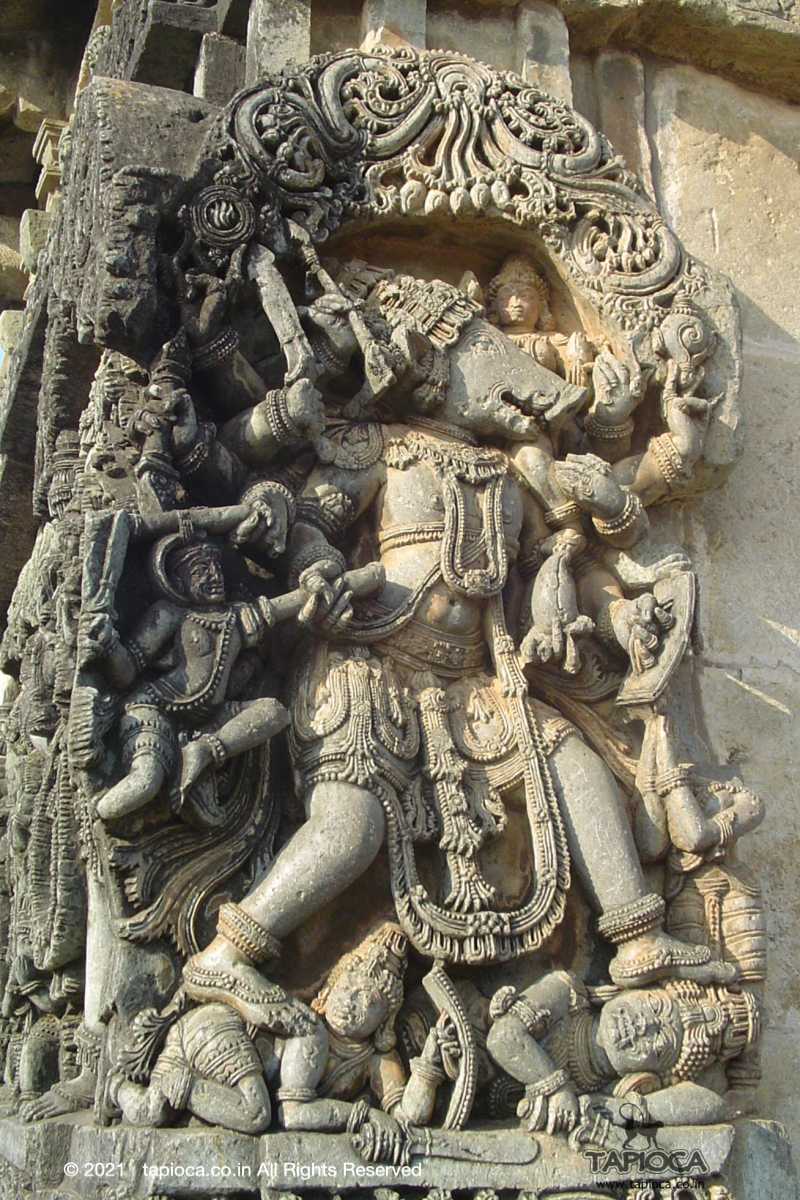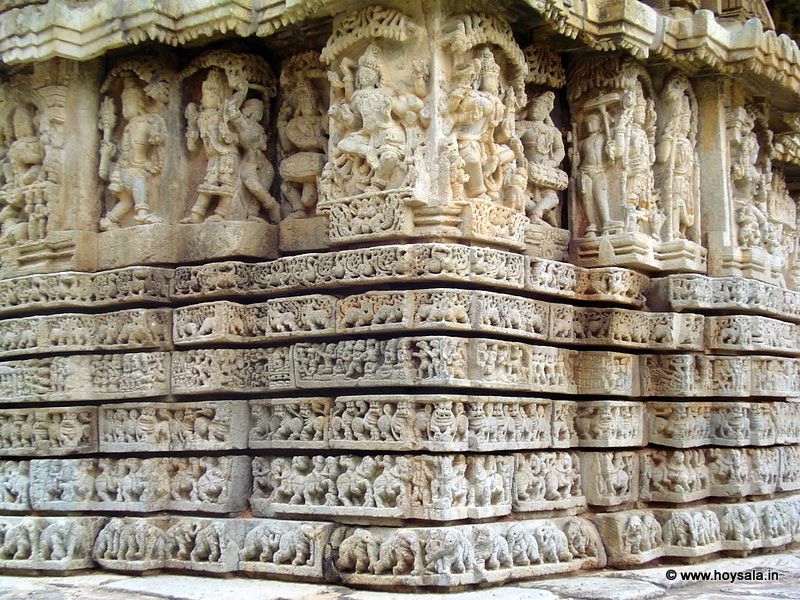Hoysala Temples

Belur
Carvings on the outer walls of Chennakeshava Temple
A
t first it may appear as if all the Hoysala temples are molded out of same architectural cast.But each of the Hoysala temples are unique and superior than the other in some way or other. The overwhelmingly dense carvings of the exterior and the giant pillars of the interiors are the hallmarks of Hoysala temples.
Hoysalas succeeded in blending superbly the geometrical symmetry of the temple plans with randomness of the sculptural beauty. Each of the Hoysala temples is fine examples of their mastery over the architectural precision and the artistic aesthetics.
Thanks to the Hoysala kings’ historical affiliations, you can see the Vaishnava, Saiva and Jain symbolisms used generously in the Hoysala Temples.

The 6 layered frieze over which the boldly executed sculptures are installed around the outer walls. All are done in soapstone.
The 6 layered frieze over which the boldly executed sculptures are installed around the outer walls. All are done in soapstone. The bottom represents a elephants is various postures, all unique, above which is a series of horses, the next band represents lions. Above this is a sequence of mythical themes carved in sequence (like in a comics strips). The top two bands are of peacock and a mythological creature.
Soapstone sculptures
The beauty of the Hoysala templs , particularly its intricate carvings owes a lot to one material - Soapstone. Unlike granite, sandstone and marble used in the construction of most of India's ancient monuments, soapstone is softer with some peculiar properties that set it apar from the former materials. To give you an idea , the softer version of the soapstone can be carved even with your finger nail.
